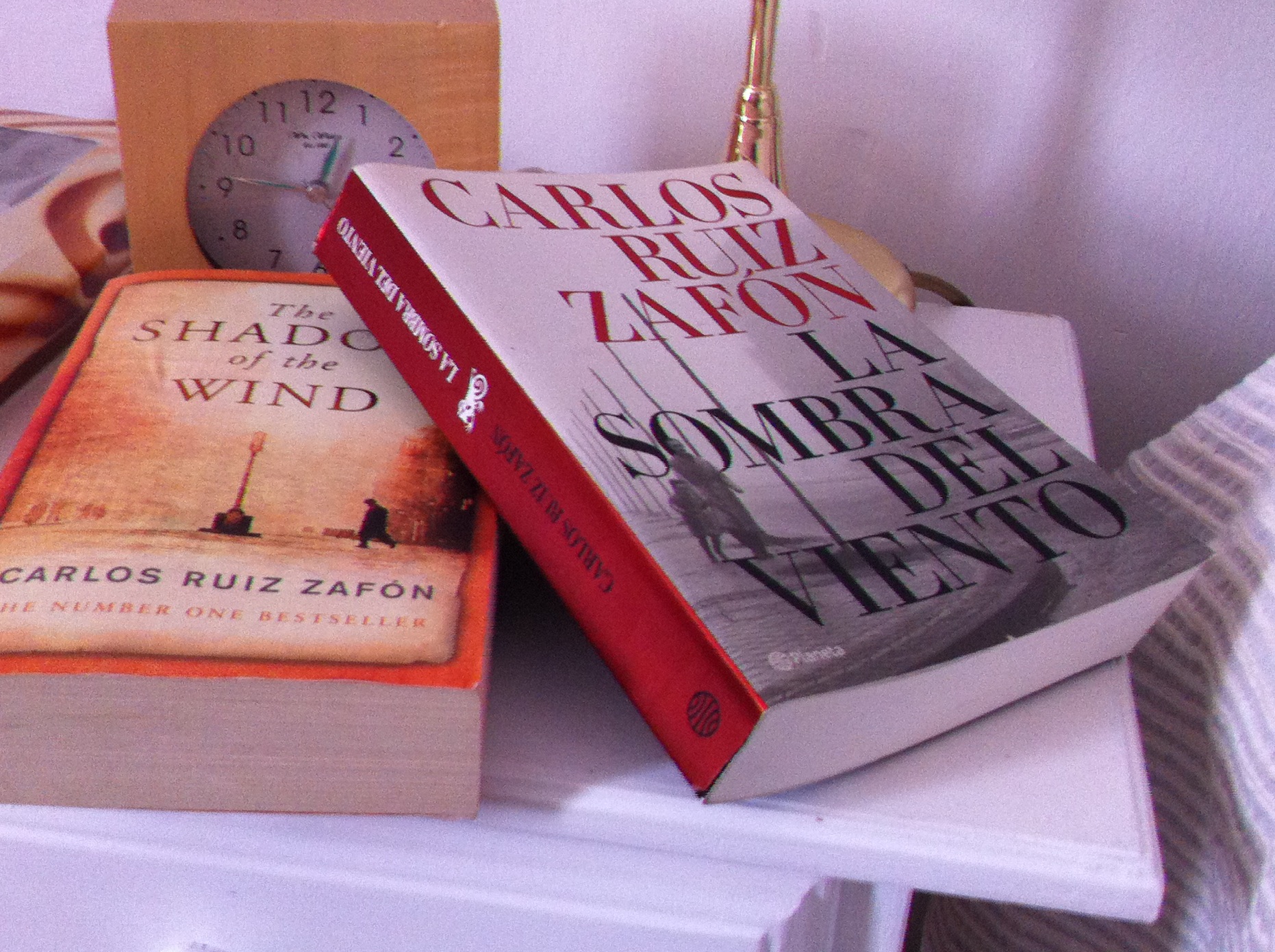I remember writing a bit of French homework when I was about 12. It was pretty dire, something about falling in a river and being rescued by a boy, and all I recall is that I ended it by writing that "now he is my boyfriend", and simply putting together the French for boy and the French for friend, coming up with the non-existent word "garçon-ami". Wrong! My friend Margaret remembered a similar mis-translation in which she was trying to write about blowing up a balloon, but ended up writing about making it explode. So we know we can't just translate word-for-word.
I'm at the stage where I can do most basic conversation, so am now wanting to speak in the same way I would in English - ie with a bit of colour, personality, and the odd flowery phrase. And that's exactly where the problems arise with the translation! As soon as we begin to use similes and analogies, we hit the buffers (golpeamos los parachoques? I think not!). These phrases or clichés are “frases hechas”, or “made phrases” in Spanish.
Along with Jose, my intercambio partner, I have begun to read a Spanish novel. We are both reading Carlos Ruiz Zafon's "The Shadow of the Wind" or "La Sombra del Viento" - Jose in English, me in Spanish - chapter by chapter.  We discuss each chapter, looking at how the language is used, and how the similes are translated. The first one was a great example of the non-translatability of each other's language. "Bernada affected a ceremonial tone that could not conceal a Cáceres accent thick enough to spread on toast." A good free translation, using an English expression which is immediately clear, and immediately conjures up a visual image AND a sound picture of the maid.
We discuss each chapter, looking at how the language is used, and how the similes are translated. The first one was a great example of the non-translatability of each other's language. "Bernada affected a ceremonial tone that could not conceal a Cáceres accent thick enough to spread on toast." A good free translation, using an English expression which is immediately clear, and immediately conjures up a visual image AND a sound picture of the maid.
The Spanish original line however is "La Bernarda afectaba un tono ceremonioso que navegaba con acento cacereño cerrado a cal y canto." So if we were translating word-for-word, we'd have something like "Bernada affected a ceremonial tone that sailed with a Cáceres accent closed, bolted and barred." The last bit “a cal y canto” is a more literary or poetic extension, whereas normally people simply use the phrase “un acento cerrado” for a strong accent.
I’m enjoying reading the novel and discussing these “frases hechas”, it’s a good way to try and add a little colour to the language – though I’m expecting to make some dramatic errors and get some extremely funny looks in the course of spicing up my conversation!
© Tamara Essex 2013
THIS WEEK’S LANGUAGE POINT:
A “made phrase” or “una frase hecha” that it might be safer to avoid – but worth understanding for when you hear it! “Ajo y agua” literally means 'garlic and water' in Spanish, but it is actually a contraction of ”A JOderse Y AGUAntarse”, which can be taken to mean something like this: “You messed up big-time, and now you have to deal with it.” Stronger words may be imagined!
For example:
Rafael: “La engañé a mi novia con otra. Pero ella se enteró y me abandonó.” “I cheated on my girlfriend with another. But she found out and she left me.”
Juan: “Ajo y agua.”